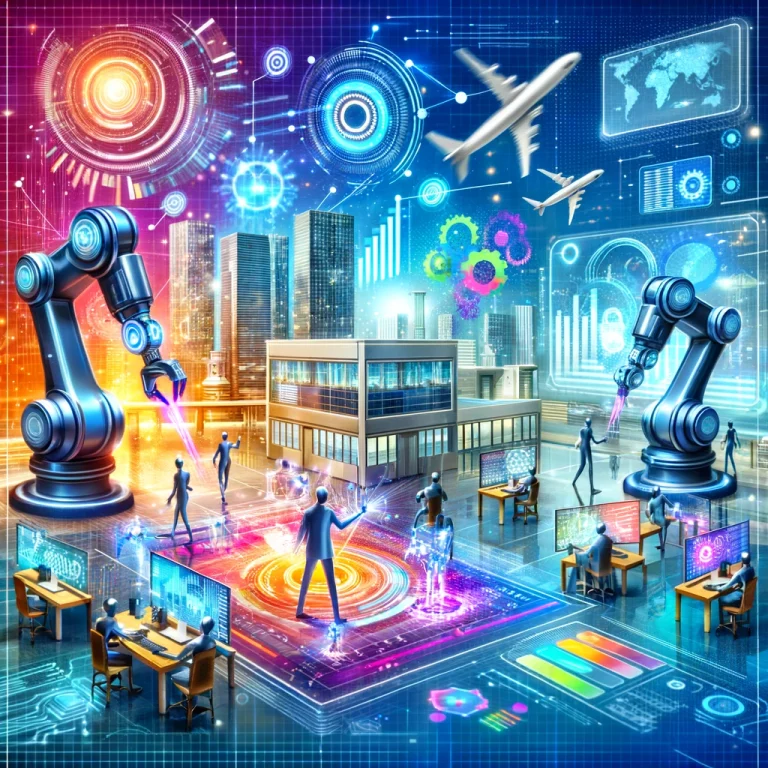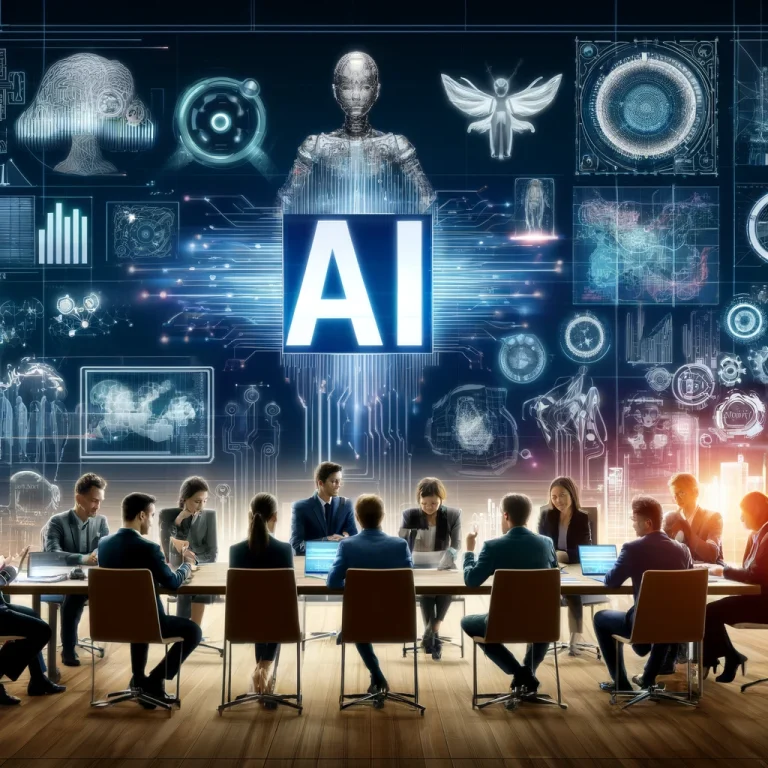AI’s Big Leaguers and Rising Stars: Charting the Course of Artificial Intelligence
Artificial intelligence (AI) is rapidly transforming our world, with companies and research institutions across the globe vying for a leading position in this revolutionary field. This blog post dives into the current AI landscape, exploring the established players, the rising stars, and the exciting trajectory of this technology.
The Incumbent Heavyweights: Leading the Charge in AI
Tech giants are at the forefront of AI development, leveraging their vast resources and research prowess. Here’s a closer look at some key players and their contributions:
- Google DeepMind: A pioneer in deep learning, DeepMind has made significant breakthroughs in areas like game playing (AlphaGo) and protein folding (AlphaFold). Their focus on fundamental AI research pushes the boundaries of what’s possible.
- Microsoft Azure AI: Microsoft offers a comprehensive suite of AI tools and services within its Azure cloud platform. Their focus on AI accessibility allows businesses of all sizes to integrate AI solutions, democratizing AI development.
- Amazon Web Services (AWS) AI/ML: Similar to Microsoft, AWS offers cloud-based AI services like Amazon Rekognition (image recognition) and Amazon Transcribe (speech recognition). Their focus on scalability caters to large-scale AI deployments, accelerating innovation across industries.
AI’s Reach Extends Beyond Tech Giants
The impact of AI extends far beyond the tech industry. Here are some examples of how different sectors are embracing AI:
- Healthcare: Companies like Johnson & Johnson are utilizing AI for drug discovery and medical imaging analysis. This can lead to faster development of life-saving treatments and improved diagnostic accuracy, revolutionizing healthcare.
- Finance: Financial institutions like JPMC leverage AI for fraud detection and algorithmic trading. This can help prevent financial crimes, optimize investment strategies, and enhance overall financial security.
- Manufacturing: Bosch is implementing AI-powered robots for automated assembly lines and predictive maintenance. This can increase productivity, reduce downtime in factories, and optimize manufacturing processes.
The Up-and-Coming Players: Shaping the Future of AI
While established players dominate the current landscape, the future of AI is being shaped by innovative startups and research institutions:
- OpenAI: This non-profit research company focuses on developing safe and beneficial artificial general intelligence (AGI). Their research on large language models like GPT-3 is pushing the boundaries of natural language processing, transforming the way we interact with machines.
- Sama: This startup focuses on building ethical AI solutions for social good. Their work on data annotation empowers marginalized communities and ensures responsible AI development, promoting inclusivity and fairness in the field.
- Element AI: This Canadian company specializes in applying AI to specific industry challenges. Their work on AI-powered safety inspections in manufacturing helps prevent workplace accidents, enhancing worker safety and well-being.
Funding the Future: Fueling Innovation
AI startups are attracting significant investments, fueling innovation across the board. For instance, OpenAI recently secured a $1 billion investment from Microsoft, demonstrating the immense potential of AI and the growing interest from major players.
The Trajectory of AI Growth: What Lies Ahead?
Based on the current landscape, here’s what we can expect in the exciting future of AI:
- Breakthroughs in Deep Learning: Advancements in deep learning algorithms are likely to lead to further breakthroughs in areas like computer vision, natural language processing, and robotics, significantly enhancing our capabilities in these fields.
- Increased Focus on Explainable AI (XAI): As AI becomes more complex, ensuring transparency and explainability will be crucial. XAI research will help us understand how AI models arrive at decisions, fostering trust and responsible development.
- The Democratization of AI: Cloud-based AI platforms and open-source tools will make AI development more accessible to smaller companies and individual developers. This will lead to a wider range of AI applications and a more diverse and innovative AI ecosystem.
Challenges and Considerations: Navigating the Rise of AI
The rise of AI also presents challenges that need to be addressed:
- Ethical Considerations: Bias in AI algorithms needs to be addressed to ensure fairness and prevent discrimination. Responsible development practices are essential to mitigate these risks.
- Resource Requirements: Training complex AI models requires significant computing power, which can be a barrier for some. Technological advancements and more efficient algorithms are needed to make AI development more accessible.
- Job Displacement: Automation powered by AI could lead to job losses in certain sectors. However, focusing on reskilling and upskilling initiatives can help prepare the workforce for the future and ensure a smooth transition.
Shaping the Future: The Positive Impact of AI
As AI continues to evolve, it will undoubtedly reshape various industries and society as a whole. By fostering responsible development, addressing ethical concerns, and focusing on AI for good







